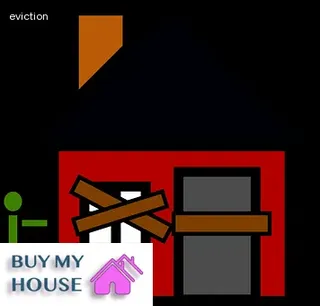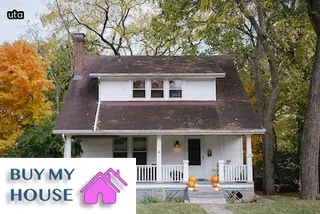Understanding squatters rights and adverse possession in Utah real estate is an important part of knowing what rights you have as a property owner. Squatting laws in Utah are unique and vary from other states, so it is important to be aware of how these laws might affect you.
Adverse possession is a legal theory that allows someone who has been occupying another person's property for a certain amount of time to become the rightful owner of that property. Generally, this requires the squatter to be living on the property continuously for at least seven years, paying taxes on it, making repairs, etc.
In addition to this, there are various elements that must be met for adverse possession to be successful such as an open and notorious use of the land by the squatter. Understanding these requirements is essential in order to make sure your rights are being protected by the law.
Additionally, squatters' rights may also come into play when it comes to abandoned properties or situations where someone else is occupying a space without permission. Different laws apply depending on whether a tenant or leaseholder has taken up residence without proper authorization.
It is important to know what steps need to be taken if you believe your property has been unlawfully occupied by another person in order to ensure your legal rights remain intact.

If you own a property in Utah, it is important to be aware of the rights of squatters and the laws surrounding adverse possession. To protect your real estate investments from unwanted squatting, you should consider taking proactive measures such as posting signs stating that trespassing is not allowed, filing an affidavit of ownership with the county recorder's office, and taking steps to secure or fence off the property.
Additionally, it can be beneficial to familiarize yourself with the laws regarding adverse possession in order to make sure that any attempts at squatting are legally recognized. It is also wise to monitor your property on a regular basis and take swift action if anyone is found living there without permission.
If necessary, you may need to seek legal assistance in order to enforce your rights as a landowner and remove any unwanted occupants.
In Utah, evicting squatters can be a difficult process. The first step is to understand your rights as a landlord and the squatters’ rights under adverse possession laws.
You must identify the squatter as someone who does not have permission to live on your property, and you must provide evidence that they are living there without authorization. Once they have been identified, you must take legal action in order to remove them from your property.
This may include filing a complaint with the local police department or pursuing an eviction lawsuit in court. Before taking any legal action, it is important to consult with an experienced real estate attorney to ensure that all of your rights and the squatters’ rights are properly protected.
If successful in court, the judge will issue an order for the squatter to vacate the premises within a certain amount of time. It is important that the court order be followed and enforced in order for you to regain control of your rental property.

Landlords in Utah have several legal options when dealing with unwanted occupants. Squatters and adverse possession are two common types of occupants that may be occupying a property without the landlord's permission.
In order to understand how to remove these unwanted occupants, landlords must first understand squatters rights and adverse possession laws in the state of Utah. Squatter's rights refer to a set of laws that allow people who are illegally occupying a property to gain legal recognition as tenants after living on the premises for a certain length of time.
On the other hand, adverse possession is an old law allowing someone who has occupied another person's land for a long enough period of time to claim ownership of it. To combat these occupants, landlords must file an action for eviction or unlawful detainer in court and then serve the occupant with an eviction notice.
If the occupant fails to move out, legal action may be taken against them including monetary damages or physical removal from the property by law enforcement officers or private security guards.
In Utah, a squatter is an individual who occupies another person's land without permission or legal right. While some states have laws that protect squatters, Utah does not.
Therefore, it is important to understand the difference between a tenant and a squatter when dealing with real estate in Utah. A tenant has a legal right to occupy the property and can be evicted under certain conditions.
A squatter, on the other hand, does not have any legal rights to the property and can be removed by the owner at any time. Squatters cannot sign leases or rental agreements and cannot use adverse possession as a means of gaining ownership of the property.
It is important to remember that while squatting may seem like an easy way to gain access to land without paying rent, it is illegal and carries potential consequences in Utah.

Adverse possession laws in Utah are designed to protect both squatters and landowners. Under Utah law, if a squatter has been in continuous, exclusive and open possession of a piece of property for more than seven years with no objection from the rightful owner, then they may be able to claim legal title to that property.
Generally, any person who is in actual possession or occupation of real estate owned by another is considered a squatter. To successfully claim title to the land through adverse possession, the squatter must prove that they have used the land exclusively and openly for at least seven years without any objections from the true owner.
In addition, they must show good faith in their ownership of the land, as well as a lack of knowledge that their possession was not authorized by the true owner. Moreover, it must be proven that all taxes associated with the property have been paid during this period.
It is important to note that adverse possession laws vary state-by-state in regards to eligibility requirements; thus it is important to consult an experienced real estate attorney for guidance on understanding squatters rights and adverse possession laws in Utah.
In Utah, the concept of adverse possession and squatters’ rights are closely linked to understanding the ‘color of title’ claim. When a property is claimed with a color of title, it means that the person claiming it has some legal document that suggests they own the land, even though their ownership may not be legally valid.
This could be a deed from an illegitimate sale or transfer, or a tax receipt that incorrectly states ownership – but in any case, it results in a presumption of rights to the property. It is important for real estate owners in Utah to know how this concept interacts with squatters’ rights and adverse possession, as it can affect their ability to take legal action against someone occupying their land without permission.
In order for an adverse possession claim to be valid under Utah law, a squatter must show evidence that they have had exclusive possession of the land for seven years or more while also paying all applicable taxes on the property during this time. If they are able to do so, they may be able to gain full title to the property through what is known as ‘quiet title’ proceedings.
Additionally, if there is evidence of color of title held by someone else besides the current owner – such as an invalid deed or tax receipt – then this could limit or even invalidate any potential claims based on adverse possession due to this competing interest. Knowing how these elements interact can help real estate owners in Utah protect their interests when dealing with squatters who may be attempting to gain legitimate rights over their land.

It is important to have knowledge of squatters rights and adverse possession in Utah real estate in order to protect yourself from illegal occupants. Having a thorough understanding of the laws and regulations related to squatting can help you protect your property and ensure that any legal steps you take are in compliance with state law.
One way to prevent squatting is to post appropriate signage on your property, clearly stating that trespassing is not allowed. You should also make sure to lock all doors and windows, install appropriate security systems, and regularly check for signs of occupancy or entry onto your land or property.
If you suspect someone has taken up residence without your consent, it is critical that you contact local law enforcement immediately. Documenting any evidence of unauthorized occupation will also help strengthen your case should an issue arise in court.
Furthermore, it may be wise to consult with a real estate attorney if you think someone might be using or occupying your land without permission. Taking the necessary precautions can help safeguard your property from potential squatters and ensure that any legal issues are handled properly.
In the state of Utah, it is important for homeowners and car owners to understand their options when it comes to affordable insurance. As a homeowner, you should consider shopping around for the best rates and coverage, as well as understanding what types of insurance are required in Utah.
Similarly, car owners need to be aware of the minimum liability requirements and if additional coverage is necessary. Obtaining quotes from multiple companies can help you find the most affordable option that meets your needs.
Additionally, asking friends, family members or financial advisors for referrals can save time in your search. Doing research online is another great way to compare prices and coverage so you can make an informed decision.
It is also important to read all terms and conditions carefully before signing any policy documents. Taking the time to educate yourself on insurance options available in Utah will help ensure that you are getting the right coverage at the right price.

Flipping houses can be a lucrative business, but it often requires significant financial resources. However, there are ways to flip houses in Utah with limited funds.
Understanding squatters' rights and adverse possession laws in the state may provide an opportunity for investors to take possession of real estate without spending money on purchasing it. Squatters' rights are based on the idea that if someone is living on another person's property without permission, they may eventually gain legal ownership through continued occupancy.
Adverse possession is when someone takes unlawful control over a piece of land, but with the intention of using it as their own and paying taxes on it for at least seven years. Investors need to be aware of these legal options when flipping houses in order to maximize profits and reduce expenses.
Additionally, investors should familiarize themselves with local zoning regulations and building codes so that they can ensure any changes made to the property comply with all necessary requirements. Lastly, investors should consider partnering with a knowledgeable real estate attorney who can provide valuable guidance on navigating Utah's complicated laws related to real estate transactions.
By following these tips, savvy investors can minimize their financial risks while taking advantage of potential opportunities in house flipping in Utah.
Investing in real estate in Utah can be a lucrative venture, but it is important to understand the legal nuances of adverse possession and squatters' rights before engaging in any transactions. Squatters’ rights refer to the ability of a person who has been living on another's property without permission or payment of rent for a certain period of time to gain ownership over that property.
Under Utah law, squatting must occur for at least seven years before any claim of ownership can be made. Adverse possession, on the other hand, is when an individual openly occupies a piece of land with the intention to establish title to it either through their own use or by payment of taxes.
Utah law states that adverse possession must occur for at least 10 years before a claim can be made. It is also important to note that both squatters' rights and adverse possession are limited by boundaries set by state laws and municipalities, so potential investors should research local regulations prior to investing in order to ensure compliance with all applicable laws.

In Utah, it is important for property owners to understand the concept of adverse possession and what it means for their real estate holdings. Adverse possession is a legal doctrine that allows someone who has been in continuous and exclusive possession of a piece of property to obtain title after a certain period of time.
This means that a squatter can take ownership of land if they meet certain criteria, such as demonstrating actual, open, notorious, hostile, and exclusive occupation for at least seven years. It is important for property owners to be aware of these rights so that they can protect their investments from squatters or other potential claimants.
While this doctrine may seem unfair to an owner who discovers someone on their property, the courts have ruled that it serves as an incentive for landowners to keep track of their assets and ensure that no one else occupies them. Understanding the implications of adverse possession in Utah real estate is essential for any property owner looking to safeguard their investments.
In Utah, understanding the rights of squatters and adverse possession can be a complex process for the average real estate owner. It is important to understand that squatters are not necessarily required to pay property taxes in Utah, however there are certain conditions and criteria that must be met in order for them to take legal possession of the land.
Generally speaking, in order for a squatter to gain legal title to a piece of real estate through adverse possession, they must demonstrate that they have been living on it or using it as their own for at least seven years and that they have been paying all applicable taxes on the property during this period. If these conditions are not met, then squatters may be held liable for any property taxes due on the land they occupy.
Additionally, if there is an existing lease or rental agreement between the squatter and the owner of the property then this could also affect whether or not they are legally required to pay any property taxes associated with the land. In conclusion, although squatters may not always be responsible for paying property taxes in Utah, it is important to understand all of the relevant laws surrounding adverse possession before making any decisions about who should pay what.
Evicting a squatter from Utah real estate can be a complicated process, especially when it comes to understanding the rights of squatters and the laws surrounding adverse possession. The first step to successfully evicting a squatter is to understand the difference between trespassing and adverse possession in Utah.
Trespassing is illegal, while adverse possession is legal if certain conditions are met. In order for someone to claim adverse possession, they must occupy the property continuously for seven years without permission from the owner and with intentions of ownership, as well as pay all applicable taxes on the property during that time period.
If these conditions are not met, then it is considered trespassing and you can take legal action against the squatter by filing an eviction notice with your local court. This will alert them to vacate the premises within a specified amount of time or face possible legal consequences.
It's important to note that even if someone has been occupying your property for more than seven years, you may still have grounds for eviction if they have not satisfied all of the requirements for adverse possession. Consult with an experienced real estate attorney in Utah to determine whether or not you have grounds for eviction before taking any further action.

The shortest period of time for squatters rights in Utah real estate to take effect is seven years. According to the Utah code, adverse possession requires that a squatter must possess and occupy the property continuously and openly for at least seven years before they can claim legal title.
This means that if a squatter has been occupying a piece of property without permission from the rightful owner, they may be able to establish legal title after this period has elapsed. Squatters rights also require that the squatter pay any taxes or fees associated with the property, and make reasonable improvements or repairs during their occupancy.
If these conditions are met, then the squatter may be able to maintain lawful possession of the land and obtain title after seven years have passed.
Adverse possession in Utah is governed by the Utah Code § 78B-6-801 and can be acquired after a period of seven years. The period of seven years must be continuous, hostile, actual, open, notorious, exclusive, and under a claim of right.
This means that the individual occupying the property must have done so without permission from the owner and with an intent to claim ownership. If all requirements are met, then adverse possession can be obtained in as little as seven years.
It is important to note that this period may vary depending on other extenuating factors such as if there is a valid written agreement between parties or if the possession is interrupted for any reason. It is also important to understand that obtaining title through adverse possession does not change any existing mortgages or liens on the property.
Adverse possession in Utah is a legal concept that allows an individual to gain ownership of a particular piece of real estate without paying for it. The concept comes from the idea that if an individual has been in possession of a piece of property for a certain period of time, then they should be able to own it as if they had paid for it.
In order to obtain title to the property through adverse possession, the squatter must meet specific requirements set forth by the state. These requirements include: continuous occupancy for at least seven years, payment of all applicable taxes on the land, and use of the land as their primary residence.
Additionally, the squatter must also publicly declare their intent to claim ownership over the property. If all these conditions are met, then a court may grant title to the squatter.
Adverse possession is considered an equitable remedy, meaning that it serves as a remedy for those who would not otherwise have legal title to a piece of property but who have used it for many years as if they were its rightful owner. Although Utah's statute regarding adverse possession is similar to other states', there are some important differences worth noting when considering this legal concept in Utah real estate cases.